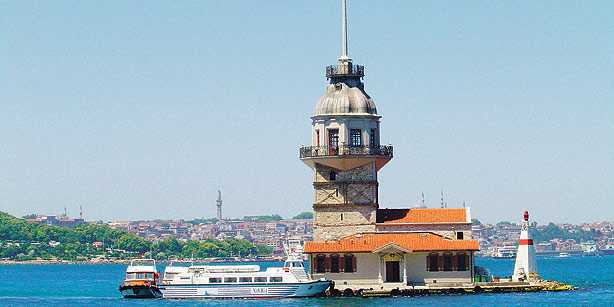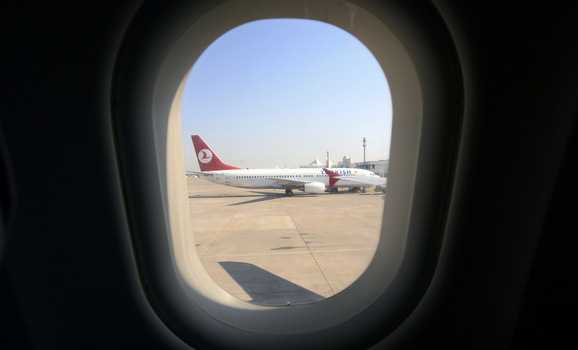The New York Times article
June 23, 2008
Op-Ed Columnist
By ROGER COHEN
ISTANBUL
Let’s talk Turkey. A war is on for the country’s soul and everyone should be watching because the little matter of Islam and democracy depends in large measure on its outcome.
Turkey was not made for Bushworld. The polarizing labels of his Manichean global struggle — us-or-them, good-or evil, for-us-or-against-us — do not work for a nation of nuances, Muslim but not Islamist, religious in culture but secular in construct, of the Occident and the Orient, bordering the West’s cradle in Greece and its crucible in Iraq.
Here, in this bridging country, a NATO member long served the diet of mild bigotry that has held it not quite European enough for the European Union, a struggle has been engaged. It pits proud secularists against pious Muslims in a battle to establish the contours of state and mosque.
The West should not be impatient, or complacent, in contemplating this fight. Hundreds of years, countless wars and myriad dead were required before church and state elaborated the legal architecture of their separation. Islam is the youngest of the world’s major religions. Its accommodation to modernity is a virulent work in progress.
Nowhere more so than in Turkey, a conservative country fast-forwarded to Westward-looking secularism in the 1920s by the founder-hero of the modern republic, Mustafa Kemal Ataturk, and now grappling with the place in that republic of an ascendant political Islam.
I like this fight. It has its crude, misleading labels — the “secular fascists” of the Kemalist establishment in one corner against the “Islamofascists” of the ruling Justice and Development (AKP) party in the other — but it is open and vigorous. The crisis of Islam could use a broader dose of Turkish give-and-take.
The latest round came this month when Turkey’s highest court rebuffed Prime Minister Recep Tayyip Erdogan, the AKP leader and an observant Muslim with an Islamist past, on a matter of high symbolism.
It ruled that Erdogan’s legislation, passed in February, allowing women attending state universities to wear head scarves in observance of their Muslim beliefs violated secular principles enshrined in the Constitution.
My reaction to this is twofold. First, women of college age should be allowed to wear what they like in accordance with their personal convictions. In that sense the court’s ruling is unacceptable.
Second, the secular foundations of modern Turkey have been essential to creating this most permissive of Muslim societies; they should not be compromised without a fight, especially in a Middle Eastern environment where democracy is rare and Islamism potent. In this perspective, the court’s ruling is a salutary challenge to the AKP to keep proving its liberal credentials.
On balance, I side with the court. I’m confident that in the medium-term, Turkish women will win the right to wear headscarves wherever. I’m less confident that the creeping Islamization fostered by the AKP is accompanied by an unshakeable commitment to secular democracy, as Erdogan insists.
Let the party pay its dues, if necessary in repeated confrontations with the court. Turkey is a laboratory of a moderate Muslim democracy; do not rush the experiment. It’s easier to don a veil than remove it. Reversibility is not Islam’s forte.
Erdogan and the AKP are popular in Washington and Europe, while the military-judicial secular establishment has not had this hard a time since Ataturk. But in high posts in education, the health department and elsewhere in public service, Islamic credentials that pass muster with the AKP are increasingly a sine qua non.
Subtle changes in mores have accompanied this shift in power, where getting the right job or right husband can involve new demonstrations of piousness. Head scarves are more common. Advertisements aimed at women have been photoshopped by newspapers to lengthen sleeves and skirts for conservative Muslim sentiment. The head-to-foot swimsuit known as a “hasema” is making its appearance on Turkish beaches.
I don’t believe Shariah law is coming to Turkey or the AKP has Iran in mind. Islamofascists they are not. But nor do I believe the party is without its strains of radicalism at odds with the nation Ataturk forged.
The same court will rule soon on a case that would ban Erdogan and 70 other party members from politics on the grounds they are dismantling secularism. In that the party won 47 percent of the vote last year, such a ruling would fly in the face of democracy.
The court should refrain from the ban. But I’m glad the threat of it exists. And if it came, I’m sure a successor to Erdogan, and perhaps the AKP, would quickly emerge.
The fight for Turkey’s soul is not about to abate: it’s salutary as long as it remains open. The West should do all it can to safeguard that openness — and that may involve an occasional dose of “secular fascism.”






